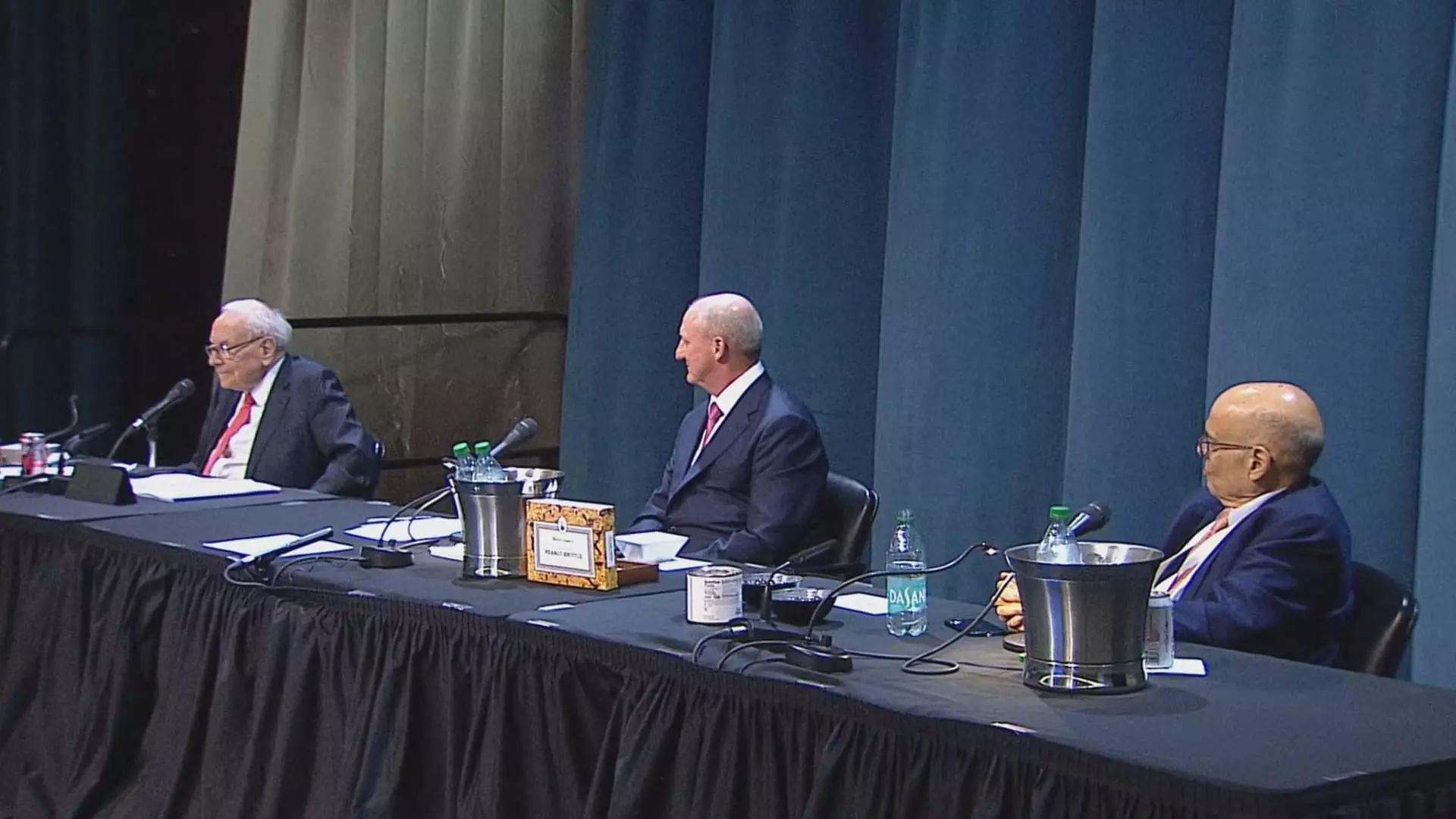In the midst of swirling speculation about leadership transitions, Warren Buffett remains one of the most charismatic yet grounded figures in the investment world. With his announcement to step down as CEO of Berkshire Hathaway by the end of 2025, the stakes have never been higher for investors who have long revered him as the “Oracle of Omaha.” At 95, Buffett symbolizes an era of investment brilliance that has spanned six decades, and his absence from the next annual meeting, often dubbed “Woodstock for Capitalists,” will mark the end of an era. This transition isn’t just about a changing of the guards; it’s about how the investment landscape will evolve without the foresight and wisdom he has consistently demonstrated.
While many praise his tenure, it’s essential to critique how effectively Buffett has adapted to modern economic challenges. In today’s volatile market, Buffett’s reliance on traditional investment frameworks needs scrutinizing, especially as young investors seek newer, unconventional avenues in cryptocurrency and tech startups. Perhaps it’s time to explore whether his timeless strategies still hold water against rapid global change.
Real Estate vs. Equities: A Fundamental Shift
At a recent meeting, Buffett articulated a sentiment that may shock proponents of traditional asset classes: he remains skeptical about real estate as compared to equities. His position is not entirely revolutionary; seasoned investors have long noted that real estate transactions can be cumbersome and complex. However, Buffett’s insistence that stocks simplify investment opportunities into a five-minute, anonymous transaction raises questions about the sustainability of such an approach.
Buffett’s logic may resonate with those who prioritize liquidity and immediate returns, yet this viewpoint may overlook the long-term benefits of investing in tangible assets. Real estate not only serves as a hedge against inflation but also provides a sense of community and permanence that stocks simply cannot. As the younger generation values experiences over assets, straw polls reveal growing favor for real estate investment amidst increasing concerns about the stock market’s unpredictability. Are we witnessing the inception of a paradigm shift where the old guard fails to perceive the underlying benefits of investing in the material?
The Lesson of Patience: Home Runs Over Singles
Buffett’s philosophy of waiting for rare investment “home runs” epitomizes an age-old investment strategy. He emphasized that over 50 years, Berkshire Hathaway has primarily secured gains from a small number of key investments—an assertion that validates the merit of patience in the often frenetic world of finance. While persistence in searching for those extraordinary opportunities pays dividends, such a conservative approach may be antithetical to the fast-paced innovations present in emerging markets.
As timely opportunities arise in new industries—especially those influenced by technology or shifts in consumer behavior—Buffett’s traditional “slow and steady” adage may come under fire. Ascendant markets such as renewable energy, digital currencies, and even biotechnology challenge the efficacy of resting on one’s laurels. Investors who act decisively on emerging opportunities may find richer returns than the lengthy evaluation of options Buffet describes. Are we entering an era in which patience must be coupled with proactive exploration?
Insurance Float: An Ingenious Strategy or a Risky Gamble?
Buffett’s discussion of Berkshire Hathaway’s insurance float reveals yet another layer to his investment strategy—one that is as ingenious as it is precarious. He posited that the insurance float is “absolutely free money” that significantly boosts the company’s financial standing. The concept emphasizes the brilliance behind arbitraging the time gap between premium collections and claim payouts. Yet isn’t this reliance on float a double-edged sword?
While it may provide Berkshire Hathaway a competitive edge, there exist inherent risks associated with underwriting losses that frequently pull the rug from beneath. Can Buffett’s confidence in float withstand the tumultuous tide of unprecedented global financial crises? As climate change accelerates, so too do irregularities in weather patterns, which could inversely affect claim rates. The sustainability of leveraging insurance float needs to be assessed critically—what appears as ‘free money’ today may very well evolve into a liability tomorrow.
Value in Balance Sheets: A Timeless Discussion?
Buffett’s belief in the primacy of balance sheets over income statements reveals a deeper insight into his investment philosophy. In an age of accelerated technological advancements and data analytics, one could argue that an adherence purely to traditional metrics may diminish a comprehensive understanding of a company’s health. Investors today have access to multifaceted data sources, often revealing far more than the straightforward profit-and-loss accounts laid bare by income statements.
Engaging with the nuances of balance sheets may provide significant insight; yet, one wonders if Buffett’s wisdom may become too outdated. The rapid transformation of companies, especially in the tech and digital realms, may challenge the utility of any static financial metric. As theories of valuation evolve, the skepticism surrounding traditional financial statements becomes palpable. Can a conscientious investor afford to solely depend on such measures, or must one adapt to the dynamic variables defining enterprise worth?
Warren Buffett’s insights are invaluable, yet as we transition into the future, the established ways he championed merit evaluation. His legacy may inspire, but it’s the new generation willing to challenge these old frameworks that may ultimately lead the way.

